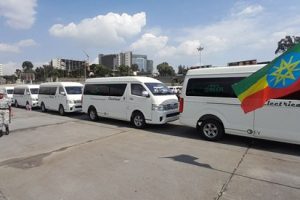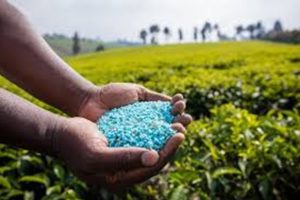
Despite the negative propaganda by some western media and partners, many have the confidence that Ethiopia is a dynamic country with an established state system and resilient people that cannot survive occurrences like the current conflict.
The Ethiopian foreign policy unveils that the experiences of many African and some non-African countries show that an armed conflict is not an absolute impediment to FDI. Investors always anticipate challenges and provide solutions in advance. Secondly, the Government has taken bold investment-related reforms, including the legal and institutional frameworks and administrative measures that ease doing business in Ethiopia.
The reforms have caught the eyes of both local and foreign investors and moved them to decide to take a risk. Thirdly, we live in a multipolar world where several middle powers are making notable influence and contributions in less developed countries like Ethiopia. Multipolarism has created the advantage of widening policy options for Ethiopia as it no more relies on the will of a single partner to get what it needs to address its challenges.
Uplifting Ethiopia’s regional and global influence requires a wide range of measures at home and abroad. First, to be a regional hegemony, Ethiopia must be at peace with itself as a house divided against itself cannot stand. Therefore, addressing the prevailing insecurity and armed conflict is a matter that cannot be left for tomorrow.
The armed conflict in Northern Ethiopia came as a golden opportunity for Sudan, Egypt, and some partners in the West to encroach into the country’s sovereignty or provide their prescriptions on domestic matters.
Secondly, for Ethiopia to exert enduring regional influence, it has to achieve the required level of economic development. A nation that cannot feed its citizens cannot exert sustainable regional influence. As much as Ethiopia is poor, it will continue to rely on other countries to satisfy its citizens’ basic needs, increasing its vulnerability to external pressure and manipulation, let alone making meaningful regional influence.
Thirdly, Ethiopia’s regional influence requires a well-articulated pragmatic foreign policy that considers the changing regional, continental, and global dynamics and realities. The Horn of Africa and the Red Sea region have witnessed unprecedented changes where major global and regional powers have made bold unilateral and concerted diplomatic measures to increase their presence. Some of such initiatives tend to exclude Ethiopia, thereby threatening to decrease its regional role and influence.
After Ethiopia was suspended from AGOA which gives opportunity to export textile and leather products free from cotta and tax, the producing manufacturing lost the opportunity to sell their products in the USA. Hence, to compensate the lost chance, the Ministry of Industry proposes to Office of the Prime Minister, to Investment Commission and to the Ministry of Finance to sell their products in local markets.
The foreign companies when they invest their money to engage in leather and textile production made agreement with the government to supply their products to foreign markets. It resulted from Ethiopia’s expulsion from AGOA by US government since January 1 2022 with the allegation of committing human rights violation in the northern part of the country where war was broke out.
Months ago, the Ministry of Industry announced that due to the cancellation of Ethiopia from AGOA, 64 leather industries were unable to export their products to the USA market.
Based on the AGOA chance, Ethiopia exported its leather and textile products to the US market free of tax for the last 21 years. About 80 percent of leather and shoes of Ethiopian products where find their way to the US market.
According to Birhanu Firjebo, Communication Affairs’ Director of Leather Industry Development Institute, previously, manufacturers of leather products were suffering from the impact of COVID 19 and by now the cancelation of Ethiopia from AGOA further crippled them. As a result, Industries which engaged in producing shoes, glove, wallet and leather clothes are currently producing bellow 50 percent of their capacity.
Huajian Shoe Factory, George Shoe Ethiopia Plc and Youbang Manufacturing Of Shoes Plc which are foreign big shoes producers gave up their production. They were suffering from the impact of COVID-19 and the currently blockade from AGOA forced them to close their factories.
In addition to adverse impact of AGOA, COVID 19, and the war broke out in the northern part of the country, the propaganda disseminated from abroad critically affect the production.
As to Birhanu, in this budget year, it was planned to earn 51 million USD from leather export but only 27.3 million USD was earned. This could cover only 53.3 percent of the plan. In the shoes sub sector the plan was achieved only by 30 percent and the closure of three shoes producing factories attributed to the reduction.
One of the factories’ demands is to sell their products in local market that necessitates amendment of agreement they made with the government upon arrival but it is beyond the mandate of the Ministry of Industry. The demand can only get approval from the Investment Commission, Ministry of Finance and the Prime Minister Office. Accordingly, the demand was forwarded to these pertinent bodies and they are discussing the matter, Birhanu said.
As to him, the factories’ demand to sell 50 percent of their products in local market is hard to get positive response by this level. The government may allow them to sell up to 20 percent of their products locally. If the request gets acceptance, 9 leather industries used to export 100 percent of their products to foreign market will be benefited.
In addition, in order to compensate the foreign currency that was earned from AGOA; the government is searching alternative markets in Africa and Middle East countries.
To this end, diplomatic work is undergoing with some African countries through applying give and take approach and government officials are talking with their counter parts to get market in those countries.
As mentioned above, due to the suspension of Ethiopia from AGOA, more than 64 leather industries are unable to export their products.
According to the Ministry of Industry, there are bulky leather and leather products which are sold in the US and European market but the AGOA effect has become hurdle to export the products to these markets. It was learned that 78 percent of Ethiopian leather products exported to the US market.
Dagnachew Shiferaw, Executive Director of Leather Industry Development Institute, on his part said that most products exported to the US market were fashion products such as shoes, wallet and other leather products. The products were produced in big, middle and small scale firms and most of them established in order to tap the AGOA chance.
As to him, the new wing shoes factory and Hejwan shoe factory totally employed more than 8 thousand workers. Their market destiny was USA and they enjoyed sending their products free of tax.
In addition, there are more than 40 middle and small scale industries but because of the cancellation of Ethiopia from AGOA might be forced to lay off workers and reduce production volume. Moreover, some studies indicate that there will be more firms to be closed down for the reason that they export semi processed and finished leather to Europe, the other risky zone. Therefore, to sustain their export searching alternative market is undergoing and even though
In this regard, study is underway and searching for alternate market destiny has also continued.
In general, according to the Director, with the support of other stakeholders, sustaining the factories existence and enhancing the products volume has high probability. Nevertheless, it is undeniable fact that the sanction imposed on Ethiopia in a relation with AGOA might harm both the industries and the workers as well.
Ethiopia aspires to achieve economic growth through diversifying its economy and boosting export. Among the selected sectors that can accelerate growth is manufacturing. The establishment and expansion of the sector enables the nation to create job opportunities to the unemployed via linking agriculture with the industry, substituting import, transferring technology, attracting foreign investment and ultimately supplying the products to local and foreign markets.
The expansion of industrial parks by the government aims to host industries and so far, textile, leather and leather products’ firms are installed and employed hundreds of thousands of citizens. As mentioned above, among the objectives of the establishment of the manufacturing is boosting export and in the last 10 years, the nation could garner billions of Dollars from the sector.
Ethiopia has the largest livestock population in Africa. But as compared to the resource potential, the contribution of the sector to the economy is insignificant. If the sector is modernized, the nation can create wealth from meat, milk and skin products.
The expansion of the leather industry creates market to the cattle raiser in various forms. Owners of the cattle supply the skins to the industries which used as inputs, milk also has high demand particularly in urban centers, and meat also has high demand in foreign market particularly in the Middle East. Success in this regard aggregately contributes to the nation’s economic growth. Therefore, by searching alternative market to the leather products which barred by the AGOA cancellation, reviving the sector is vital and tapping the domestic resources also can be maximized.
BY ABEBE WOLDEGIORGIS
THE ETHIOPIAN HERALD TUESDAY 3 MAY 2022





